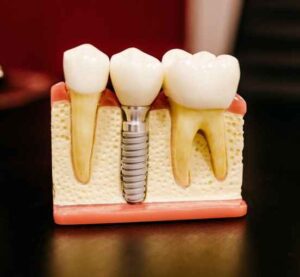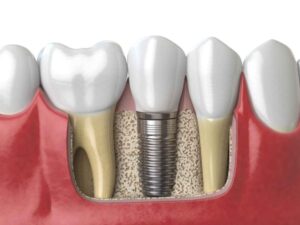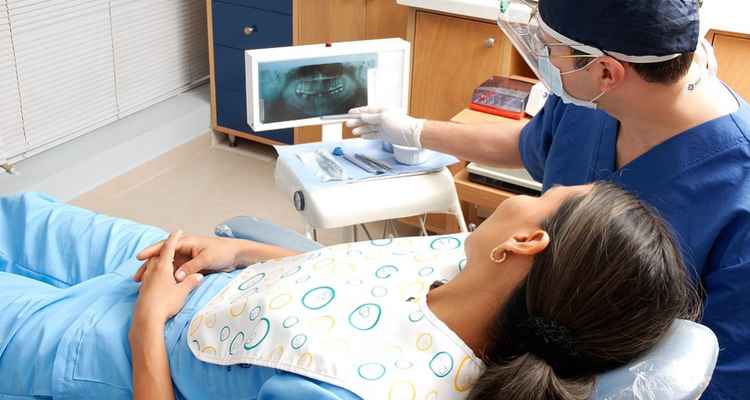If you’ve ever had dental work done, then you know that the process doesn’t usually end once you leave the dentist’s office. Whether you need to take special care with certain foods or need regular check-ups to make sure everything’s in order, there are plenty of things to look out for and preventative measures to take after your procedure. If you’ve replaced your missing tooth with Dental Implants Sydney, however, your recovery and follow-up might be different than what you’re used to. In this blog we’ll be exploring caring for your Sydney dental implants post-surgery.
Understanding Tooth Implants Sydney
Dental implants are an artificial replacement for a natural tooth. They are usually made of titanium, which is a metal that is well tolerated by the body. Dental implants are placed in the jawbone and allowed to fuse with the bone over a period of several months. Once the implant has fused with the bone, it can then be used to support a dental prosthesis, such as a crown, bridge, or denture. There are two types of dental implants, endosteal and subperiosteal. Endosteal implants are often used when the bone structure around the missing tooth is thin, fragile, or deficient. Subperiosteal implants are preferred when there is enough bone volume to support the implant. Nowadays, digital dental implants Sydney have become popular. Since the entire process is planned, guided, and performed using latest technology, placing dental implants have become minimally invasive and recovery is quick. However, the digital dental implants cost Sydney can vary from one dentist to another. Please get quotes from dentists and compare the prices.
The Process of Getting Dental Implants

Affordable dental implants Sydney are a great way to replace missing teeth and restore the functionality of your mouth. The process of getting dental implants is simple and straightforward. First, you’ll need to consult with your dentist to see if you’re a good candidate for cheap dental implants Sydney. If you are, then the next step is to have a surgical procedure to place the implants in your jawbone. After that, there’s a waiting period before it’s time to get fitted for the new teeth. And finally, when it’s time for new teeth, they will attach them to the implants so that they look natural and feel like regular teeth.
What is the Recovery Time for Dental Implants?
Most people report feeling back to their normal selves within a few days after surgery. However, it’s important to give your body time to heal. Depending on the type of dental implants you get, your recovery time may be different. For example, if you get subperiosteal implants, which are placed on top of your jawbone but under your gums, you may only need a few weeks to recover.
Do’s and Don’ts Post Dental Implant Surgery

If you’ve recently had dental implant surgery, congratulations! You’re on your way to a beautiful, healthy smile. Here are a few things to keep in mind as you care for your new implants and recovery from the procedure.
- When brushing or flossing around the area of your implant site, use gentle pressure and avoid using harsh chemicals or hard bristles that could damage the surface of the tissue surrounding the implants and gum line.
- Don’t press too hard with any instrument on or near an implanted tooth because this can lead to implant failure or injury to supporting bone structure and surrounding soft tissues.
- Make sure to tell your dentist if you experience pain when flossing, chewing or even just opening your mouth wide.
- Be careful not to bite down when you have one missing tooth – it may cause damage to the neighbouring teeth and periodontal ligaments that support them.
- Talk to your dentist about taking special care during dental work such as extractions or fillings near dental implants.
- Follow your dentist’s post-operative care instructions to heal quickly.
What to Eat Post-Surgery?
You may be wondering what you can and cannot eat after getting dental implants. It’s important to follow a soft food diet for at least the first week after surgery. This means avoiding hard, crunchy, or chewy foods that could irritate your gums or cause bleeding. A few examples of softer foods are oatmeal, yogurt, mashed potatoes, scrambled eggs, pancakes (without syrup), ice cream (without nuts), and applesauce. Be sure to drink plenty of fluids as well because it will help flush out any blood from your mouth.
When to Meet Your Dentist Post-Surgery?
It is important to see your dental dentist in Sydney regularly, especially after having dental surgery. Your dentist will be able to tell you how often you should come in for check-ups. Typically, you will need to see your dentist more often during the first few months after surgery, and then less often as time goes on. During your visits, your dentist will check the healing of your incisions, make sure the implant is secure, and assess how well you are doing overall.
You may also need to have some adjustments made or get a cleaning if necessary. If there are any complications or symptoms that persist, please contact us immediately so we can investigate further. Remember that it’s normal for your mouth to take a little while to heal completely; don’t panic if your gums bleed or swell up at times. As long as everything is progressing normally, you’ll be just fine!
Dental implants are a great way to replace missing teeth and give you back your smile. But, like any new addition to your body, they require some special care and attention. Follow these tips to recovery quickly. For more information on the cost of dental implants Sydney or post-surgery recovery, please speak to your dentist or schedule an appointment with our dentist.

